AUCD - Trainee Panel: Post-Plenary Debrief
<< Back to ProgramMonday, December 7, 2020 5:00 PM - 6:00 PM
Location: Virtual
Session Description
Panelists active in the Emerging Leaders Community will debrief the Opening Plenary: What is Equity and What does it Mean for the Disability Community. This panel discussion serves as an opportunity for Emerging Leaders (current trainees, former trainees, and early career professionals) to hear from peers representing different disciplines, career points, and lived experiences.
Moderator
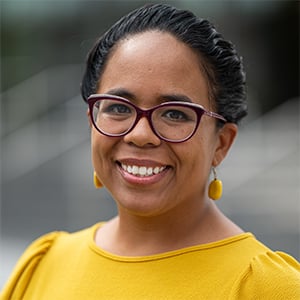
Elizabeth Morgan, Ed.M
Elizabeth Holliday Morgan, Ed.M., is a Ph.D. Candidate in Human Development at UC Davis. An educator by training, she holds a Master's in Education from the Harvard Graduate School of Education and has supported Early Childhood practitioners in utilizing developmentally appropriate practice and inclusion strategies since 2004. Elizabeth works as a program coordinator for the UC Davis Center for Excellence in Developmental Disabilities at the MIND Institute. Her area of focus includes Early Childhood and Early Intervention Services with a specific interest in under-represented populations. She has co-authored a publication titled "Caregiver Voices: Cross-Cultural Input on Improving Access to Autism Services" published in the Journal of Racial and Ethnic Health Disparities and has several additional publications under review. In 2019 Elizabeth was the lead writer and project manager for a $92,000 grant awarded to the CEDD from the Department for Developmental Services Disparity Grant Funds to create video modules to address disparities in access to early intervention services for families in the Black and Latinx communities of Northern California. Elizabeth works as a graduate researcher at the MIND Institute and recently completed an NIH T36 Training grant with the Global Alliance for Training in Health Equity Research (GATHER) program where she spent a month interning for the African Population Health Research Center in Nairobi, Kenya. She's also an elected Board member for the Association for University Centers in Disabilities (AUCD) from her work as an ASD parent activist. When she isn't thinking about autism service equity, Elizabeth enjoys the theater and spending time with her family and their dog, Billie Jean.
Panelist Speakers
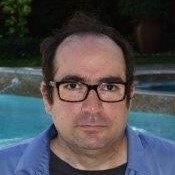 Jairo Arana
Jairo Arana
Jairo Arana began his journey as a self-advocate when, after being diagnosed later in life with ASD, he participated in UM-NSU CARD's Jobseekers Program. He was recommended to participate in the University of Miami Mailman Center for Child Development's Project SALT (Self-Advocate Leadership Training) Program. After graduating the SALT Program,
he became a trainer for Project SALT and a consultant for the UM Mailman Center for Child Development. He was also the UM Mailman Center for Child Development's first LEND (Leadership Education in Neurodevelopmental Disabilities) Self-advocate trainee. He graduated from UM Mailman Center's ETLP (Emerging Transformational Leadership Program, under LEND) and participated in the Florida DD Network Collaborative Leadership Program. He won the UM-NSU CARD Outstanding Self-Advocate Award for 2019 and was one of seven panelists invited to speak at the 26th Annual CARD Conference. He holds Bachelor's Degrees of Arts and Science in Communication in Motion Pictures and English, Creative Writing, from University of Miami and works full-time at the UM Mailman Center as a Clinical Program Coordinator.
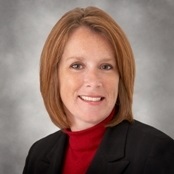 Stephanie Coleman
Stephanie Coleman
Stephanie Coleman is the Family Faculty and a past Emerging Leader at Kansas LEND. She is mom to Matthew John, a college student on the spectrum. Stephanie has advocated for Matthew his whole life, to support him in attaining the good life he envisions. Among her many roles with Kansas LEND, she is most passionate about empowering families across Kansas through strengthening the Kansas LEND family trainee discipline, and by founding and coordinating the Kansas LEND Family Education Series.
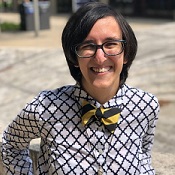
Nell, MS
Nell identifies as a hearing, sighted, physically disabled, and neurodivergent, queer, white woman. She is a disability rights and disability justice activist, especially within association and academic spaces, and has spearheaded and supported accessibility initiatives in various academic and activist spaces. She completed her Master of Science in Disability & Human Development at the University of Illinois at Chicago and her Bachelors of Art in Anthropology & European Studies at Vanderbilt University. As the first Accessibility & Meetings Coordinator for the American Anthropological Association (AAA), she is leading a number of accessibility and accommodation initiatives and cultivating cultural change.
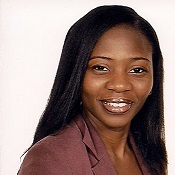 Kiki Oyetunji, MD, MBA
Kiki Oyetunji, MD, MBA
Aderonke (Kiki) Oyetunji is a second-year LEND fellow at the University of Kansas Medical Center and the 2020-2021 AUCD Emerging Leaders, Events & Projects Intern. As a physician and an aspiring child psychiatrist with interest and experience in behavioral sciences and epigenetics research, Kiki is also serving within the Kansas Department of Health and Environment (KDHE) Title V program as an intern in the Bureau of Family Health. Following a diagnosis warranting an Individualized Educational Plan targeting behavior and attention in her son at the age of 3, Kiki has developed a passion for childhood mental health. She hopes to provide an all-inclusive healthcare model for children with this form of disability. Her focus is on better understanding social determinants and related factors that impact access to comprehensive and continuous care and the resources available in aiding access to affordable care and services for this population.
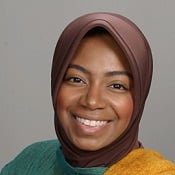 Whitney Terrill
Whitney Terrill
Whitney supports Minnesotans living with disabilities access home and community based services through her role at the Minnesota Department of Human Services,
Disability Services Division Fiscal Policy Team. She is deeply interested in value and outcomes based payment design, and currently works on a legislatively mandated project to explore how Minnesota might pay for disability services in the future. Whitney hopes to use her LEND experience to advance self-advocacy and social inclusion for people with disabilities in the US and in African countries, and to deepen her understanding of disability policy and studies. Her research and training experiences focus on interventions to support the success of transition-age youth with Autism, and understanding the extent Minnesota and other communities are truly integrated at every level, such as monitoring deinstitutionalization.
